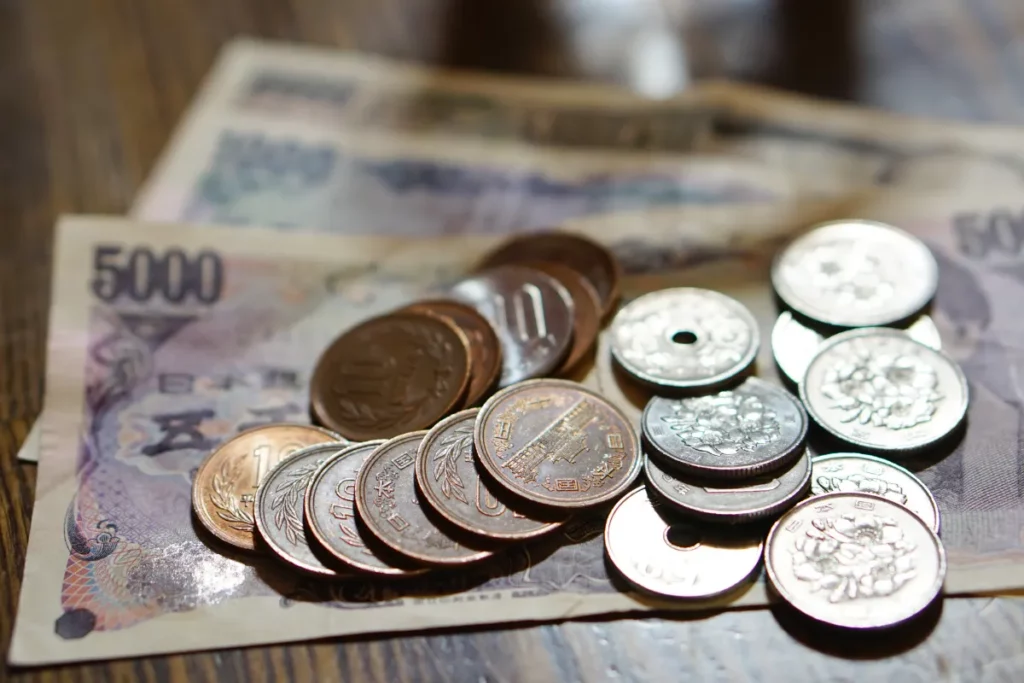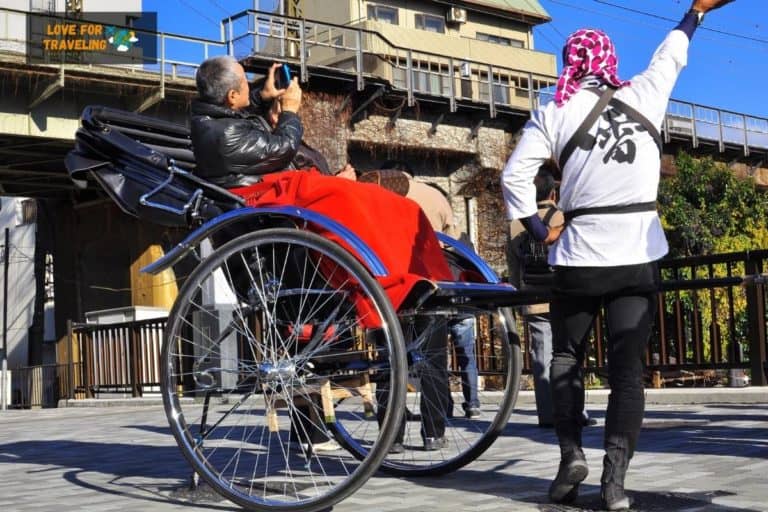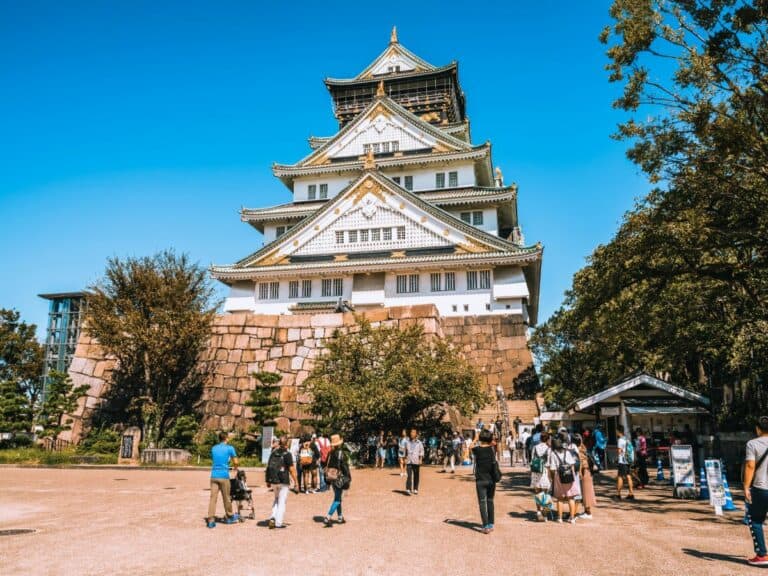Should I Get Yen Before Going To Japan? Currency Exchange Guide
Are you planning your dream trip to Japan? Don’t forget to pack your yen!
As the saying goes, ‘When in Rome, do as the Romans do,’ and in Japan, that means using the yen as your primary currency.
While it may be tempting to exchange your currency before you leave home, there are many benefits to getting yen in Japan.
One of the most significant advantages of getting yen in Japan is the convenience of accessing ATMs.
Japan is a highly cash-based society, and many businesses do not accept credit cards or other forms of payment.
By having yen on hand, you’ll be able to quickly pay for meals, souvenirs, and transportation without worrying about finding a business that accepts your preferred payment method.
Plus, many ATMs in Japan are open 24 hours a day, making it easy to withdraw cash whenever needed.
Benefits of Getting Yen in Japan

Save money and enjoy a hassle-free trip by exchanging your currency in Japan.
While exchanging your currency before your trip may be tempting, local banks and ATMs in Japan offer competitive exchange rates and potential savings. By exchanging your money in Japan, you can avoid additional fees from exchanging currency in your home country.
ATM availability is widespread in Japan, and most accept foreign cards. Seven Bank ATMs and Japan Post ATMs are the most convenient options for withdrawing money, with competitive exchange rates.
While traveler’s checks used to be the preferred method for exchanging currency, they are no longer necessary and may be limited in their acceptance. Exchange enough cash to cover incidentals, and consider using a credit card for larger purchases.
Convenient Access to ATMs
With ATMs readily available at airports, convenience stores, post offices, and banks, travelers to Japan won’t have to go the extra mile to get cash, making it a piece of cake to access their funds.
Japan is known for its widespread availability of ATMs, making it easy to obtain yen without carrying large amounts of cash. Credit cards are also widely accepted, especially in big cities, but having cash on hand for smaller transactions is still a good idea.
Money exchange machines are also an option for travelers to Japan. These machines can be found at JUSCO stores, offering competitive exchange rates.
However, these machines often issue bills of 1,000 and 10,000 yen, so if you prefer smaller accounts, you may want to withdraw a specific amount to get the desired denominations.
Finding post office ATMs is also viable, especially for those with Visa Delta/Cirrus/Plus cards. These ATMs offer a 1% fee for withdrawing yen, and the Japan Post ATMs have an English option on the menu once you insert your card.
Safety and Security
To minimize your risk of loss or theft during your travels in Japan, it’s essential to keep the amount of cash you carry to a minimum and withdraw yen from ATMs as needed.
While Japan is generally considered a safe country, it’s always better to be prepared for emergencies.
Make sure to purchase travel insurance that covers the loss or theft of personal belongings. Have a plan in case of an emergency, such as knowing the location of the nearest hospital or police station.
It’s also important to be aware of common scams that target tourists.
| Safety Tips | Do’s | Don’ts |
|---|---|---|
| Emergency Preparedness | Purchase travel insurance that covers the loss or theft of personal belongings. | Don’t assume everything will go smoothly; refuse to purchase travel insurance. |
| Don’t assume everything will go smoothly, and refuse to purchase travel insurance. | Have a plan in case of an emergency, such as knowing the location of the nearest hospital or police station. | Don’t wait until an emergency happens to figure out what to do. |
| Common scams | Be aware of common scams that target tourists, such as individuals posing as police officers. | Don’t assume everyone is trustworthy, and let your guard down. |
Flexibility in Managing Expenses
Having the flexibility to withdraw smaller amounts of yen initially and adjusting withdrawals based on actual expenses allows for better budget planning and cost management while traveling in Japan.
It’s recommended only to exchange enough cash to cover incidentals and to withdraw money from ATMs as needed.
This approach allows you to adjust your budget according to your travel itinerary and cultural immersion experiences.
By withdrawing smaller amounts of yen, you can avoid carrying large amounts of cash, which can be safer and more convenient. It also lets you track your expenses better and adjust your spending accordingly.
Reputable Currency Exchange Services

Check out reputable currency exchange services available at airports, train stations, and tourist areas in Japan to get competitive rates and convenient operating hours.
These services offer exchange rates that are often better than those at hotels or banks and are open for longer hours, making them a convenient option for travelers.
They usually have no exchange limits, meaning you can exchange as much cash as you need without worrying about reaching a maximum amount.
Remember that exchange rates can fluctuate quickly when exchanging currency, so checking the current rate before exchanging your cash is good. It’s also important to be aware of exchange limits, as some services may have a maximum amount that you can trade in a single transaction or per day.
Considerations and Tips
Navigating the financial landscape in Japan can be a rollercoaster ride, but with these insider tips, you’ll be able to steer through the twists and turns and come out on top.
Double-check the exchange rate and fees before the transaction to avoid currency exchange scams. Be wary of street vendors or individuals offering to exchange currency, as they may be operating illegally.
It’s also important to notify your bank and check card compatibility before traveling to Japan to ensure smooth usage.
Research Local fees
While exchanging money at the airport may seem the most convenient option, it may not always offer the best exchange rates. It’s important to research local charges associated with currency exchange in advance to avoid hidden costs.
Here are some tips to help you find the most cost-effective options for currency exchange in Japan:
- Compare exchange rates at banks, post offices, and licensed money changers to find the best rate.
- Look for ATMs that accept foreign cards, such as Seven Bank ATMs and Japan Post ATMs, as they often offer competitive exchange rates.
- Check if your credit card has foreign transaction fees, and consider using a credit card for larger purchases to get the best exchange rate.
- Be aware that some ATMs are unavailable on weekends, so plan accordingly.
Conclusion
So, should you get yen before going to Japan? It ultimately depends on your personal preference and travel style. However, there are many benefits to exchanging your currency once you arrive in Japan.
Not only do you have convenient access to ATMs and reputable exchange services, but you also have the flexibility to manage your expenses without worrying about carrying large amounts of cash.
Think of exchanging money in Japan as unlocking a treasure chest of possibilities.
With yen in hand, you can explore the vibrant streets of Tokyo, indulge in delicious sushi, and soak in the natural beauty of Mount Fuji. Don’t let the fear of managing foreign currency discourage you from experiencing Japan’s offers.
Embrace the adventure and exchange your currency with confidence.






